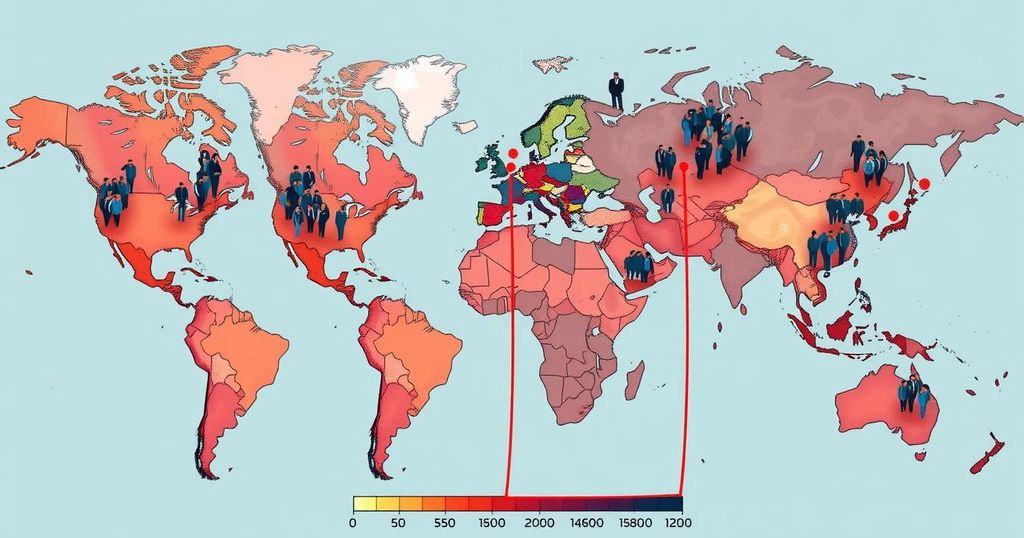The International IDEA reported an eighth consecutive year of global democratic decline, noting significant reductions in election credibility and voter participation. Key factors include governmental intimidation, foreign interference, and misinformation. Nearly 20% of elections faced disputes, and 47% of countries showed declines in democratic indicators. The report emphasizes the importance of elections in reversing this trend.
The International Institute for Democracy and Electoral Assistance (International IDEA) has reported a concerning global trend: democracy has experienced a decline for the eighth consecutive year. This year witnessed the most significant deterioration in the credibility of elections and parliamentary oversight in nearly 50 years, largely fueled by governmental intimidation, foreign interference, disinformation, and the misuse of artificial intelligence during elections. Significant drops in voter turnout and the increasing number of election disputes have exacerbated the situation, with one-third of elections faced with some form of contestation.
The organization highlighted that from 2008 to 2023, actual voter participation declined from 65.2% to 55.5%. “Elections remain the single best opportunity to end democratic backsliding and turn the tide in democracy’s favor,” noted Kevin Casas-Zamora, Secretary-General of International IDEA. The report detailed that nearly 20% of elections between 2020 and 2024 had either a losing candidate or party contest the results, with legal appeals now common in resolving disputes.
The organization further indicated that 47% of countries assessed have experienced descending democratic indicators. This steady decline is noticeable across all regions, including traditionally robust democracies, and fragile governments alike. While Africa’s democratic performance has remained relatively stable, there has been notable deterioration in the Sahel region, particularly in coup-stricken Burkina Faso. Conversely, countries such as Burundi and Zambia have shown marked improvements.
In Western Asia, over one-third of countries received poor performance ratings. Europe has observed widespread declines in civil liberties and the rule of law, though progress is noted in nations like Montenegro and Latvia. The Americas exhibit a mixed response, maintaining a general stability punctuated by declines in Guatemala, Peru, and Uruguay.
The Asia-Pacific region displayed minor declines overall, but significant regressions were observed in Afghanistan, where the Taliban remains unrecognized, and Myanmar, embroiled in civil conflict post-coup. International IDEA’s Global Report on Democracy serves as a critical warning that immediate action is necessary to restore faith in democratic processes across the globe.
The ongoing decline in global democracy is a pressing issue that reflects the deterioration of election integrity, political transparency, and civil liberties. The International IDEA’s annual report serves as an authoritative source chronicling these declines and emphasizing that sustained democratic processes rely on credible elections and active participation. Multiple factors are contributing to this decline, including governmental actions, the impact of technology, and social upheaval, which have together undermined the foundation of democratic governance.
In conclusion, the report by International IDEA underscores a troubling trajectory for global democracy, marked by diminished election credibility and increased contestation of electoral results. It highlights the urgent need for the restoration of democratic principles, with the assertion that elections represent the best pathway to reversing this trend. The varying regional performances indicate a complex landscape that requires strategic efforts to improve democratic practices worldwide.
Original Source: apnews.com






